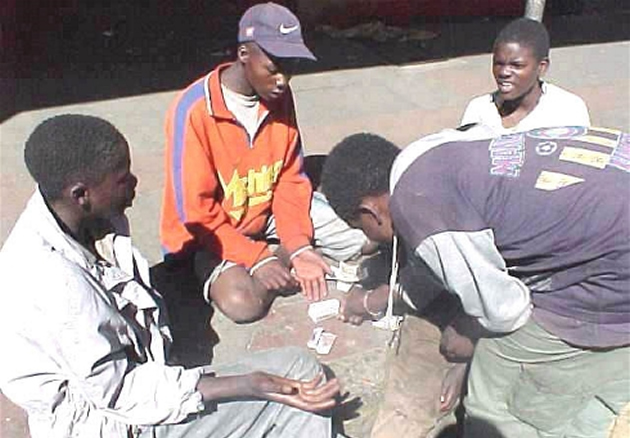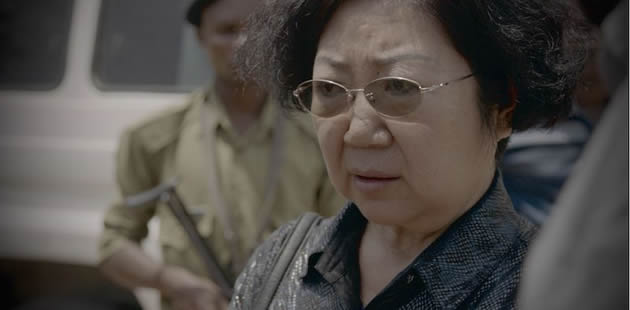Creating monsters out of saints

 Elliot Ziwira @The Book Store
Elliot Ziwira @The Book Store
SOME call them a menace, as they extend their unwelcome hands to them for alms and leftover food; others have no kind words for their unkempt, scarecrow appearances, with their threadbare, wash-free, bath-free existence inciting scrawny faces.
At their worst, they are known to shout obscenities at the perceived or real enemies of their lot – those who turn a blind eye to their plight.
Yet others among us see prospective sex objects in their vulnerability, as the battle to keep body and soul together intensifies, and the monstrous fish of prey lies in wait at the shores where the smaller species eke out an existence.
Yes, they might be foul-mouthed, lice-infested drug addicts, who do not think twice when they feel that their territory is encroached upon, but who really is to blame for this proliferation of urchins on our streets? Street kids, we might call them, but do they belong to the streets? Did the streets beget them? Are they not monsters of our own creation as a society? Every child is born a saint, and remains one, until society corrupts him or her; but when that same society denies responsibility, then the monsters that it creates, will haunt it ceaselessly.
The issue of street urchins is a thorny one, especially when it is weighed against a community that is too busy fighting against itself, as individuals are always on their marks in a rat race against time.
Gentle reader, how many times have you pouted your mouth in disgust, when somebody else’s child, who in all fairness is also your own, extend a malnourished and dirt hand for food and alms? Does it ever cross your mind that your beautiful daughter or intelligent son might also end up on the streets of doom? Do you sometimes take a moment to reflect on the possibility that our future leaders and captains of industry are roaming the streets without even elementary education or basic considerations of etiquette?
A perusal through our literature reveals our own shortcomings as a people when the issue of street urchins is fore-fronted. In “Somewhere in this Country” (2006) Memory Chirere highlights how society plays a part in the creation of its own enemies. Through its own incessant conflicts, society spews out products that will come back to haunt it. But children, as children, will always remain children, as long as all of us are willing to treat them as children and accord them the love and opportunities that will make it possible for them to be redeemed.
Shimmer Chinodya also purveys the societal ills which culminate in the littering of the streets with children whom everyone wants to chide, forget about, sneer at, exploit and strangle. This is especially apt in “Chairman of Fools” (2005), “Tale of Tamari” (2004) and “Tavonga” (2005).
Against the background of the many faces that street urchins wear, the reasons for their increasing numbers on the streets and the solutions that may be proffered to mitigate their plight, the reading of Rodgers Matsikidze’s “The Suppressed Voice” (2015) becomes both revealing and informative. The book bares societal folly which is central to the collapse of the family unit that should be responsible for moulding the individual and pampering his or her dreams.
Through use of user friendly language, conventional setting and realism, Matsikidze, like Chirere and Chinodya, chronicles the plight of children living on the streets by giving voice to their gagged murmurs.
“The Suppressed Voice” is the story of Themba Madora, a brilliant boy from an affluent family, who finds himself on the streets after the death of his parents. Madora, Themba’s father, is a self made man who through determination and hard work, changes stations in his life – from abject poverty to extreme wealth. However, as is the case with most men, his wealth got to his head and eventually to his carnal desires, which could no longer be satiated by one woman. He succumbs to AIDS, and within a short period of time, his wife Susan also dies, leaving behind, a 13-year-old son to face the vagaries of an extended family which believes that Madora owed them a favour for being born one of them and for dying.
The inheritance wars which Matsikidze skilfully exposes are a cause for concern as they are one of the reasons behind the predicament that most children find themselves in on the death of their parents. Madora’s family converge on his Borrowdale house, and share among themselves whatever they believe to be theirs, without giving a hoot to Themba, his son and rightful heir.
Mujoni, Madora’s elder brother, takes the young orphan to Mapanzure Village in Charumbira, and there his education is sacrificed and his dreams are set ablaze. Life takes an unbearable turn as the household chores take a toll on him.
His only confidante and friend becomes, Tsitsi, who always reminds him of the light at the end of the tunnel for everyone who perseveres and endures.
But vulnerability is one aspect of existence which always crouches on hope. Vulnerability attracts vultures and other animals of prey. Women, children, orphans and the poor are vulnerable in one way or the other; and it is this vulnerability that gags their voices, as need overwhelms reason.
Such was Themba’s undoing when an immoral businesswoman, Amai Chiromo offers to take him out of his misery and be believes her.
In his immature psyche, Harare is where everything starts and ends, for its opportunities are as endless as the sky, though unbeknown to him, are as unreachable as the horizon. Amai Chiromo, whose debauchery causes the death of her husband at the hands of one of her many boyfriends, finds pleasure in quarrying on the likes of Themba.
Her idea is to take him to the city and make him quench her high libido. Like the biblical Joseph, Themba takes to his heels as “Pharoah’s wife” bares herself in his eyes. He eventually ends up in the streets where some children take pity on him and offer him accommodation and food. They take him to a plastics and cardboard shanty city on the periphery of the capital.
The inhabitants of this “city” are street urchins who are fodder to the humongous apparatus of oppression – emotional, psychological and physical. Businessmen, businesswomen, politicians, pastors and captains of industry would be seen driving their sleek cars to shanty city, to shamelessly sleep with girls and boys young enough to be their grandchildren and in the process infect them with sexually transmitted diseases, HIV/AIDS among them.
However, as is always the case when one has nothing to lose, Themba decides to fight on behalf of a girl abused by the CEO of a prominent company. He deflates his car’s wheels, and the events following hard upon leaves the CEO humiliated. He loses his money, company cheque book, and other accessories. The engine of his car is also stolen when he swoons to the realisation of his own metaphorical nudity if word gets out that he was grounded in the vile riven abode of oppressed and suppressed. Unfortunately, or fortunately, his story eventually finds its way in the newspapers.
Matsikidze is contemptuous of society’s blindness to the plight of children living on the streets, the shameless way some prominent people abuse them, instead of protecting and lifting the yoke that burdens them.
The suppressed voice is however given impetus through Themba’s initiatives. A successful institution, The Suppressed Voice College, is born as the protagonist impresses a non-governmental organisation on the need for them to be given a chance through education, instead of running battles with the police and society at large. Government, through the Ministry of Social Welfare, comes on board; the pedophiliac Teclar Chiromo is arrested for infecting 10 of the 20 children she is alleged to have abused, with HIV, and she is jailed for 10 years. Thus, hope for the voiceless and vulnerable is redeemed. Themba who is now in the sixth form wants to be a medical doctor, after which he promises to tie the knot with his sweetheart Tsitsi, now a teacher.
Although the book has editorial glitches which could have been avoided, and follow a thin and predictable plot, it goes a long way in highlighting the plight of street urchins, as well as offering solutions that may help in arresting the problem. It is indeed everyone’s duty to protect and fight for children’s rights so that they do not become monsters of our own making.







Comments